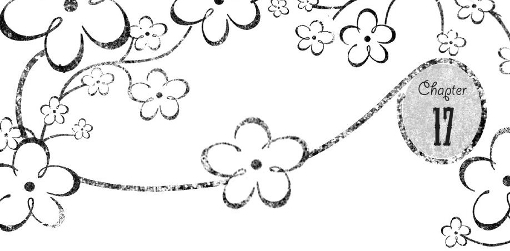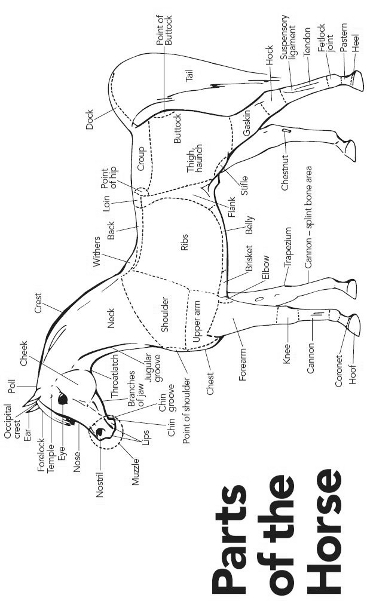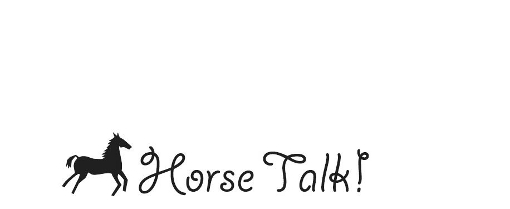Unhappy Appy (15 page)


Madeline's van wasn't at our house when Hawk and I got back. We turned the horses out to pasture and headed inside the house.
Dad opened the door for us, letting out a surge of savory turkey smell. “I was wondering when you two would show up. Lizzy took the turkey out a while ago.”
“We need to wait just a little longer,” I said.
“Why?” Dad had black grease on his nose. Something about it made me want to laugh and cry at the same time.
“Because everybody's not here yet,” I answered.
As if on cue, the minivan roared up our street and came to a squealing stop.
Dad glanced over my head to see outside. “But . . . how did . . . ?”
“I called Madeline,” I confessed. “Don't get me wrong. I still don't think you should have invited her. And it feels weird to have her around, even if she's not as bad as I thought she was.” How could I explain to Dad that it felt like betraying my mom to have another woman eat turkey with us?
Dad put his hand on my head. “Winnie, nobody could
ever
take your mom's place.”
I looked up at him and rubbed the grease off his nose. He knew. My dad understood.
“Madeline and I are just friends,” he said.
Hawk elbowed me. “Whatever that means. Right, Winnie?”
Mason pushed right past us and into the house, shouting, “Go, Towaco! Go, Towaco!”
Madeline walked in, wearing oven mitts and carrying a big bowl of sweet potatoes. Coils ran under the bowl, and a battery stuck out.
“I see you're trying out your new battery warmer,” Dad said. “I was thinking that if you used a metal bowl, you might . . .”
We soon sat down to Lizzy's amazing Thanksgiving feast, Hawk on my left, Mason on my right. Lizzy said grace, which included not only the Wyoming turkey, lizard potatoes, warmed sweet potatoes, and frog Jell-O, but all the people seated around our table and just about everybody we'd met since moving to Ashland.
We talked about school and horse therapy and inventions while we ate. And when nobody could eat another bite of carrot pie, Dad explained our tradition of naming three things we were thankful for.
Madeline had to start. She named Mason (Dad forgot to explain the no-family rule), new friends, and electricity.
Hawk was next. “Towaco, the sound of a whippoorwill, and Winnie.”
“Go, Towaco!” Mason cried.
We laughed. Then Lizzy named Jesus first; then Larry, her lizard; and Geri, her friend.
When it was my turn, I didn't know what to sayânot because I couldn't think of anything. Twenty-four hours ago, I'd been afraid I couldn't come up with three things I was thankful for. Now I didn't know what to choose. “Nickers, Hawk, Mason . . . but I'm also thankful for the smell of hay, and the way light sneaks into the barn through tiny cracks, for fetlocks on Clydesdales, arched necks on American Saddle-breds, Arabian eyes, horse whiskers . . . and for Nelson, my barn cat. And Catman!” I wished Catman could have been right there so I could tell him I was thankful for our friendship, whatever it was.
I'd been so sure I needed a
best friend.
I thought I knew what that was. But God was filling that best-friend hole in his own wayâwith Catman and Hawk, with Mason and Nickers, with Lizzy and my dad . . . with himself.
My gaze fell on Mason. His face crinkled into a huge smile, and he pointed at the window. I turned and looked. “It's snowing!” I cried.
Hawk and I grabbed our coats and dashed to the barn for our first ride in the snow. We cantered bareback through fields, heading for Catman's to wish him a Happy Thanksgiving. Thick white flakes nearly blinded me, but Nickers knew the way.
The horses loved the snowfall as much as Hawk and I did. They kicked up their heels and whinnied back and forth through the snow.
God was in the details, and I talked with him:
Thank you, God, for the sound of horses' hooves, the caw of that crow, the swish of Nickers' tail, tree shadows on fresh snow, Hawk's laugh. . . .
I could have gone on and on, listing so many
surprises.
What I felt was more than happiness, more than a feeling, as if God had reached right past feelings to put his joy into the secret places of my heart.
There were as many things to give thanks for as there were snowflakes.
Hawk and I cantered onto the Coolidges' almost-white lawn as Catman ran out, waving, and a blanket of white wrapped up the world, covering every bump in the frozen dirt, softening edges, and bringing beauty to thistles and weeds.



Horses communicate with one another . . . and with us, if we learn to read their cues. Here are some of the main ways a horse talks:
Whinnyâ
A loud, long horse call that can be heard from a half mile away. Horses often whinny back and forth.
Possible translations:
Is that you over there? Hello! I'm over here! See me? I heard you! What's going on?
Neighâ
To most horse people, a neigh is the same as a whinny. Some people call any vocalization from a horse a neigh.
Nickerâ
The friendliest horse greeting in the world. A nicker is a low sound made in the throat, sometimes rumbling. Horses use it as a warm greeting for another horse or a trusted person. A horse owner might hear a nicker at feeding time.
Possible translations:
Welcome back! Good to see you. I missed you. Hey there! Come on over. Got anything good to eat?
Snortâ
This sounds like your snort, only much louder and more fluttering. It's a hard exhale, with the air being forced out through the nostrils.
Possible translations:
Look out! Something's wrong out there! Yikes! What's that?
Blowâ
Usually one huge exhale, like a snort, but in a large burst of wind.
Possible translations:
What's going on? Things aren't so bad. Such is life.
Squealâ
This high-pitched cry that sounds a bit like a scream can be heard a hundred yards away.
Possible translations:
Don't you dare! Stop it! I'm warning you! I've had itâI mean it! That hurts!
Grunts, groans, sighs, sniffsâ
Horses make a variety of sounds. Some grunts and groans mean nothing more than boredom. Others are natural outgrowths of exercise.
Horses also communicate without making a sound. You'll need to observe each horse and tune in to the individual translations, but here are some possible versions of nonverbal horse talk:
EARS
Flat back earsâ
When a horse pins back its ears, pay attention and beware! If the ears go back slightly, the horse may just be irritated. The closer the ears are pressed back to the skull, the angrier the horse.
Possible translations:
I don't like that buzzing fly. You're making me mad! I'm warning you! You try that, and I'll make you wish you hadn't!
Pricked forward, stiff earsâ
Ears stiffly forward usually mean a horse is on the alert. Something ahead has captured its attention.
Possible translations:
What's that? Did you hear that? I want to know what that is! Forward ears may also say, I'm cool and proud of it!
Relaxed, loosely forward earsâ
When a horse is content, listening to sounds all around, ears relax, tilting loosely forward.
Possible translations:
It's a fine day, not too bad at all. Nothin' new out here.
Uneven earsâ
When a horse swivels one ear up and one ear back, it's just paying attention to the surroundings.
Possible translations:
Sigh. So, anything interesting going on yet?
Stiff, twitching earsâ
If a horse twitches stiff ears, flicking them fast (in combination with overall body tension), be on guard! This horse may be terrified and ready to bolt.
Possible translations:
Yikes! I'm outta here! Run for the hills!
Airplane earsâ
Ears lopped to the sides usually means the horse is bored or tired.
Possible translations:
Nothing ever happens around here. So, what's next already? Bor-ing.
Droopy earsâ
When a horse's ears sag and droop to the sides, it may just be sleepy, or it might be in pain.
Possible translations:
Yawn . . . I am so sleepy. I could sure use some shut-eye. I don't feel so good. It really hurts.
TAIL
Tail switches hard and fastâ
An intensely angry horse will switch its tail hard enough to hurt anyone foolhardy enough to stand within striking distance. The tail flies side to side and maybe up and down as well.
Possible translations:
I've had it, I tell you! Enough is enough! Stand back and get out of my way!
Tail held highâ
A horse who holds its tail high may be proud to be a horse!
Possible translations:
Get a load of me! Hey! Look how gorgeous I am! I'm so amazing that I just may hightail it out of here!
Clamped-down tailâ
Fear can make a horse clamp its tail to its rump.
Possible translations:
I don't like this; it's scary. What are they going to do to me? Can't somebody help me?
Pointed tail swatâ
One sharp, well-aimed swat of the tail could mean something hurts there.
Possible translations:
Ouch! That hurts! Got that pesky fly.
OTHER SIGNALS
Pay attention to other body language. Stamping a hoof may mean impatience or eagerness to get going. A rear hoof raised slightly off the ground might be a sign of irritation. The same hoof raised, but relaxed, may signal sleepiness. When a horse is angry, the muscles tense, back stiffens, and the eyes flash, showing extra white of the eyeballs. One anxious horse may balk, standing stone still and stiff legged. Another horse just as anxious may dance sideways or paw the ground. A horse in pain might swing its head backward toward the pain, toss its head, shiver, or try to rub or nibble the sore spot. Sick horses tend to lower their heads and look dull, listless, and unresponsive.
